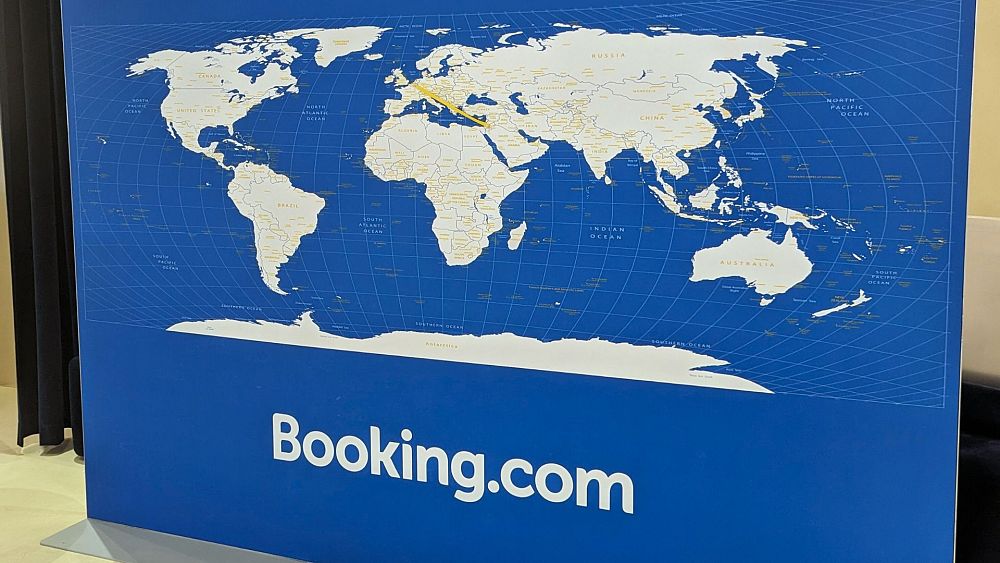
Leading online travel agency Booking.com has ventured into the world of AI with a new ChatGPT-powered trip planner.
Announced today (27 June), the booking site’s new AI Trip Planner aims to help you hone in on destinations and accommodation in a conversational way.
“Much like how you would begin to talk about planning a trip with your partner or friends,” says Rob Francis, CTO of Booking.com.
Ultimately, it could provide the same services and benefits of a human travel agent, Booking.com’s CEO Glenn Fogel told Euronews Travel at ETC’s Destination Europe Summit.
Powered partly by OpenAI’s ChatGPT, the tool will launch in beta mode to a selection of US travellers on the Booking.com app on 28 June.
Will Booking.com’s AI Trip Planner make life easier for travellers?
Booking.com says the AI Trip Planner can be used to get inspiration, plan your trip and even create daily itineraries.
You’ll be able to chat with it “in a very natural, human way,” says Rob. Once you’ve explained what you’re looking for in broad or specific terms – be it a romantic beach hotel or an air-conditioned apartment close to your favourite restaurant – it will refine your search, finding the best stay for your needs.
The tool uses ChatGPT, a popular chatbot developed by OpenAI. Users ask it questions and it uses masses and masses of data to give a unique, highly personalised response. While it does not “think” like a human, it’s the closest thing that’s been developed yet.
Since the results are integrated into Booking.com, you’ll also be able to see prices and book your stay with a simple tap of a button.
Could AI trip-planning develop further in future?
“Wouldn’t it be wonderful if [travel] was all seamless and frictionless?” says Glenn.
In the future, he envisions AI will not only help travellers “instantly fix” their bookings in the event of changes and cancellations, but it will “see the problem before the traveller sees the problem… and suggest how to fix it.”
By combining travel, accommodation and other bookings under one payment, bots could solve multiple problems at once. For example, if a flight was delayed, the airport pickup would automatically be amended and the hotel would be informed, without the traveller having to do anything.
“That’s the future,” says Glenn.











